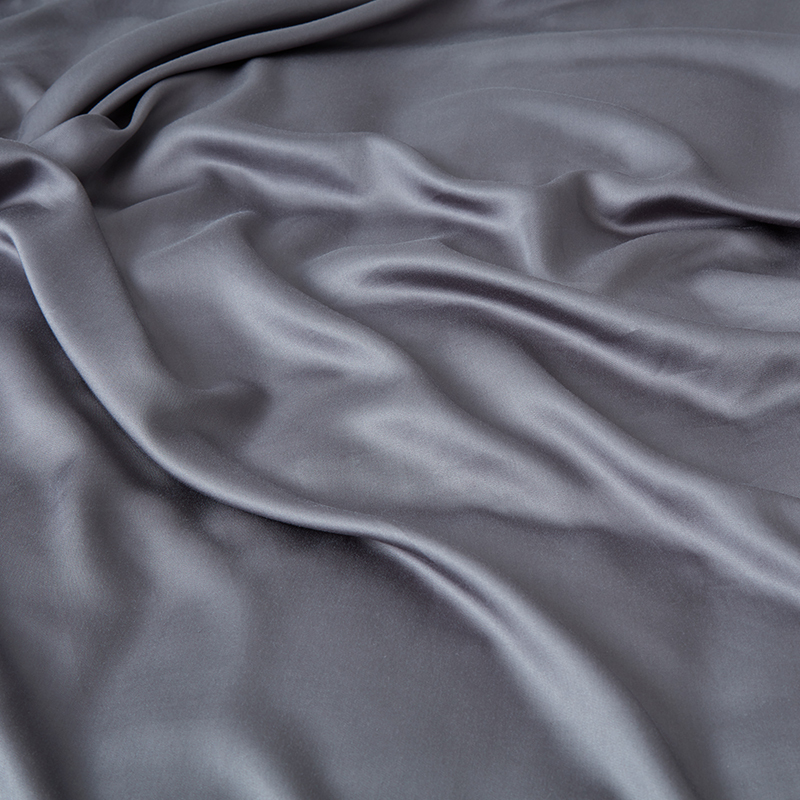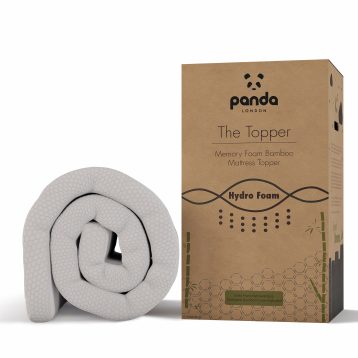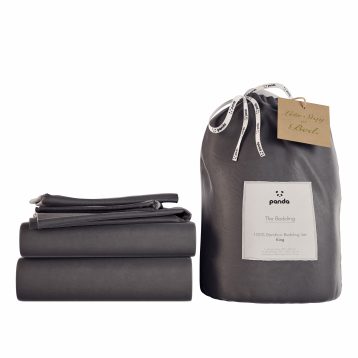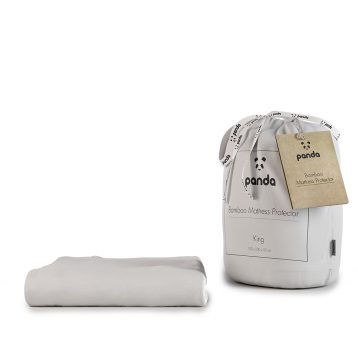The Ideal Frequency for Changing Your Bed Sheets: What You Need to Know
Last updated on April 2nd, 2024 at 09:47 am
“You should change your sheets at least once every two weeks. However, factors like personal sweat levels, underlying health conditions, and your living environment may require more frequent changes to maintain cleanliness and prevent bacteria buildup.”
Maintaining clean bedding is crucial for health and comfort, yet it’s easy to overlook the need to change our sheets regularly. This guide will highlight the importance of fresh bedding, debunk common myths, and offer expert recommendations on how often to change your sheets for a hygienic and cosy sleep environment.
What are the basics of bed hygiene
Bed hygiene plays a crucial role in promoting a healthy sleep environment – and there are so many things that can impact how clean your bed and bedding are. While you’re sleeping, you are also sweating, shedding skin cells, producing oil on the surface of your skin and so on. Many of us also enjoy hot drinks in bed as well as snacks, which might leave spillages or crumbs. Body lotions or fake tan might leave marks on bedding too. On top of this, general allergens and bacteria will build up over time.
Clean bedding can help prevent skin irritation, allergies, and the accumulation of dirt and bacteria. Regularly changing your sheets is a simple yet effective way to maintain good bed hygiene and support your overall well-being – it protects your skin and your respiratory health.

How often is it recommended to change your bed sheets?
The frequency with which you should change your bed sheets is a topic that garners much attention from sleep experts and dermatologists alike, emphasizing its importance for maintaining a clean and healthy sleep environment. Alok Vij, MD, a dermatologist at the Cleveland Clinic, underscores the necessity of changing sheets at least once every two weeks to ensure optimal cleanliness and freshness. This recommendation is a baseline for maintaining a hygienic sleeping area, which is crucial for skin health and overall well-being.
Moreover, the benefits of opting for bamboo bed sheets in this regimen cannot be overstated. Not only do bamboo fibres offer the advantage of becoming softer with each wash, enhancing the comfort of your sleep experience, but they also possess natural antibacterial properties, making them an even more appealing choice for those concerned with cleanliness.
However, it’s important to note that the ‘once every two weeks’ guideline is not a one-size-fits-all solution. Individual factors significantly influence the ideal frequency for changing sheets. For instance, people who sweat more during the night, either due to personal physiology or underlying medical conditions, may find that their sheets require more frequent changes to prevent the buildup of moisture and bacteria, which can exacerbate skin conditions and disrupt sleep.
Additionally, environmental considerations play a pivotal role. The climate in which you reside affects how quickly bacteria and other microorganisms can proliferate on your bedding. Warmer, more humid environments create ideal conditions for bacteria growth, necessitating more frequent washing of bed sheets to maintain a clean sleeping space.
Experts such as Philip Tierno, a microbiologist and pathologist at the New York University School of Medicine, emphasize the link between clean bedding and health. According to Tierno, the accumulation of sweat, skin cells, and body oils on sheets can provide a breeding ground for bacteria, fungi, and even dust mites, known allergens. These can pose risks to skin health and respiratory health, underscoring the need for a clean sleep environment.
Given these considerations, it’s clear that finding the right balance for sheet-changing frequency is a personal matter that should account for individual health needs, lifestyle factors, and environmental conditions.
Make Bedtime Perfect
Explore our Bamboo Bedding
What are the signs it’s time to change your sheets
Certain signs indicate that it’s time to change your sheets more frequently than your regular schedule. These include visible stains, strange odours, allergen buildup shown through itchiness or trouble breathing, or a noticeable decrease in the cleanliness and comfort of your bedding. Pay attention to these signs and adjust the frequency of your sheet changes accordingly. For example if you wear strong lotions or fake tan, you will likely need to change your bedding more often than when you’re not wearing these.
All of these signs can be split into three categories, as such. These are visible signs, which are the stains and discolouration you might see; the sensory cues available to you, such as odours or any changes in texture you can feel; and health signals, including any flare-ups, skin irritations, or allergies. Check for these regularly!
Are there any special considerations to think about?
Specific circumstances may necessitate more frequent sheet changes. For example, if you’re a hot sleeper, you might need to change your bedding more often due to excessive sweat production; cooling sheets, such as those made from thermoregulating bamboo, can help rectify this issue. If you have skin conditions such as eczema or dermatitis, you may also need to change them more often. This is due to skin flakes building up in the bed, as well as the transfer of any emollients or steroid creams. You might also want to change your sheets more frequently in the Summer when the weather is warmer.
If you let your pets sleep on the bed (and we all do, from time to time at least!), then it’s worth washing your bed sheets more often, as pets can carry different bacteria, germs, or dirt. Childrens’ sheets may need changing more regularly, to protect their immune systems, and also because little ones can often wet the bed and so on. Furthermore, wash your bedding after a period of illness! When we’re ill, we’re breathing added germs all over our bedding, and it is important to change these out when you’re feeling better so the illness doesn’t come straight back.
How can you extend sheet life between changes?
To prolong the time between sheet changes and keep your bedding fresh, there are plenty of things you can do! When you get out of bed in the morning, turn the duvet back to air the sheets out rather than tucking it up over the pillows – this can help keep sheets fresh. Wearing pyjamas at night helps minimise the transfer of lotions, fake tan or cream, as well as other types of bacteria and skin cells.
You should also consider pillow and/or mattress protectors; these are an added layer of freshness and protection, and usually they are waterproof. This means they help to combat stains from any spillages.
How do you go about choosing the right sheets?
Selecting high-quality sheets made from breathable, hypoallergenic, and antibacterial materials can contribute to a better night’s sleep and extend the lifespan of your bedding. Think carefully about which material is best for you and your sheets:
Bamboo: Bamboo is a high-quality, super-soft material that is naturally antibacterial and hypoallergenic. It repels dust mites and bacteria, as well as sweat thanks to being moisture-wicking. And remember, they get softer with every wash!
Cotton: an accessible and breathable fibre that tends to absorb moisture well and doesn’t usually harbour bacteria.
Synthetic: Various materials that aren’t usually breathable or soft and are often prone to retaining odours and bacteria. They often need more washing than natural materials.
Thread count has an impact, too. High quality sheets with higher thread counts might need washing more often – they tend to be more durable, so can withstand extra washing, and keeping them in their best condition will help you enjoy their benefits for longer.
Proper sheet care and maintenance
Proper care and maintenance of your sheets can help preserve their quality and cleanliness. Follow the care instructions provided by the manufacturer, wash them in warm (not cold, but not hot) water with a mild detergent, and avoid overloading the washing machine to ensure thorough cleaning. This last one also helps keep them in the right shape! Regularly inspect your bed sheets for signs of wear and tear or stains, and replace them as needed to maintain optimal hygiene and comfort. Keep a few spare sets in your cupboard (always ensuring they’re in a cool, dry space) to be comfortable at bedtime, even when your favourites are in the wash.
Different materials do need different levels of care. Bamboo sheets, for example, should be washed at 30 degrees and line dried – avoid the tumble dryer wherever possible. Cotton sheets can go in the dryer, so they don’t need as much care, but you should still avoid washing them on too hot of a setting.
So, how often should you change your sheets?
As the experts suggest, the minimum should be every fortnight. But of course, there are circumstances that will mean you ought to do so more often than this: wearing certain lotions or tanning products, living in a hot climate where you sweat a lot, allowing pets on the bed, and so on. Maintaining a clean and fresh bed will help you sleep better, and wake up feeling a lot fresher. Put a schedule in place that allows you to keep on top of changing and washing your sheets – a routine that works for you will eliminate the possibility of you forgetting to do them!
Explore our range:
Bamboo Mattress Topper
Rated 4.97 out of 5£84.96 – £204.00Memory Foam Bamboo Pillow
Rated 4.96 out of 5£44.95Original price was: £44.95.£38.21Current price is: £38.21.100% Bamboo Bedding
Rated 5 out of 5£16.96 – £153.00Bamboo Mattress Protector
Rated 5.00 out of 5£16.96 – £42.50





